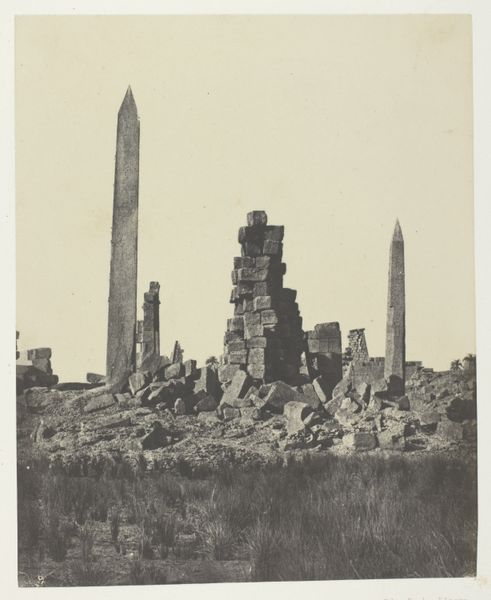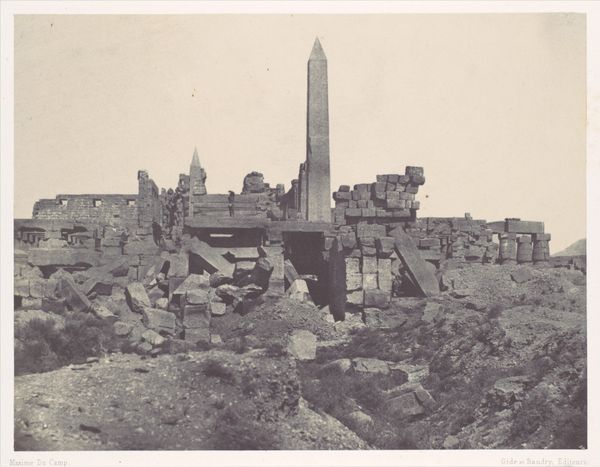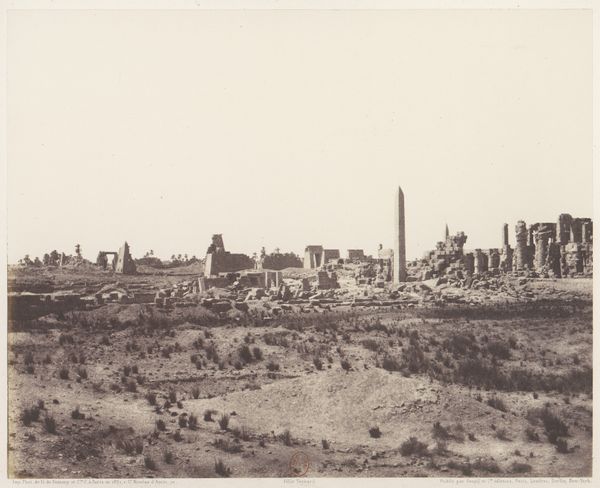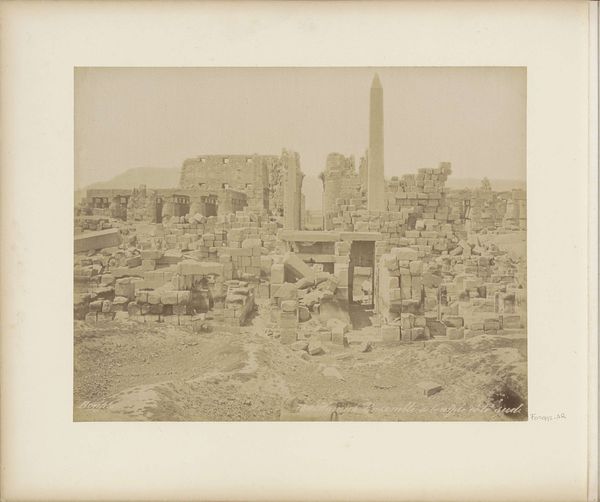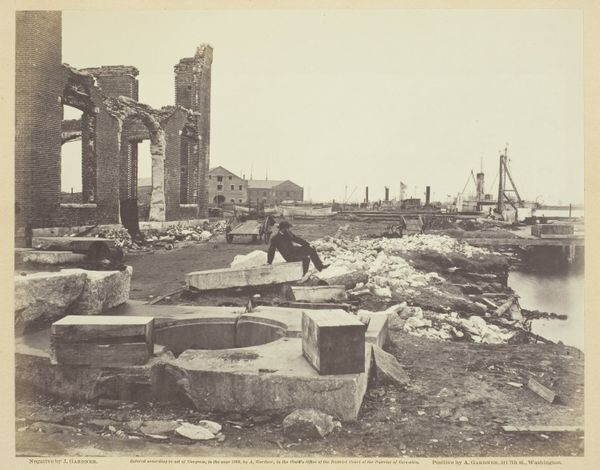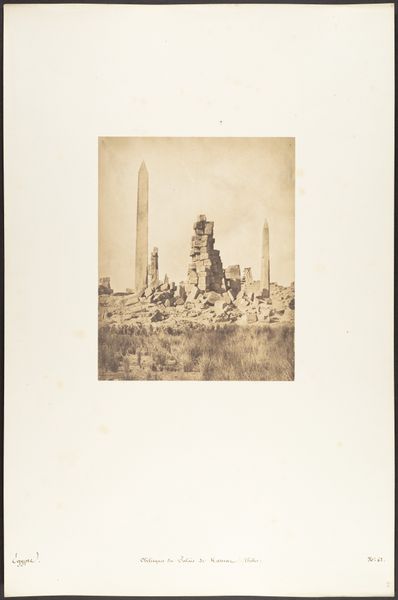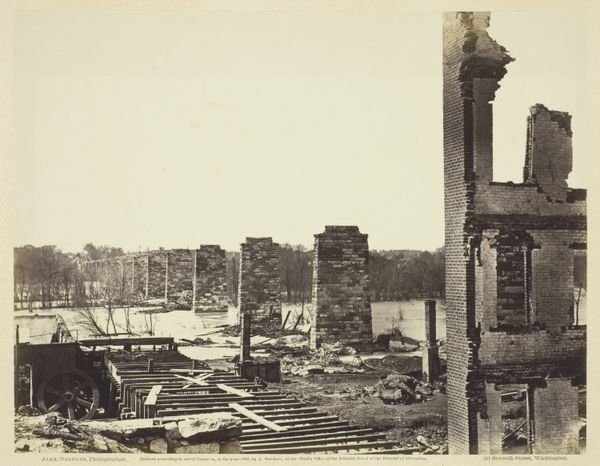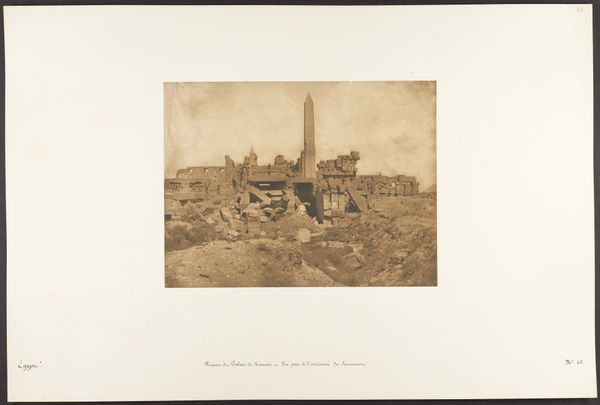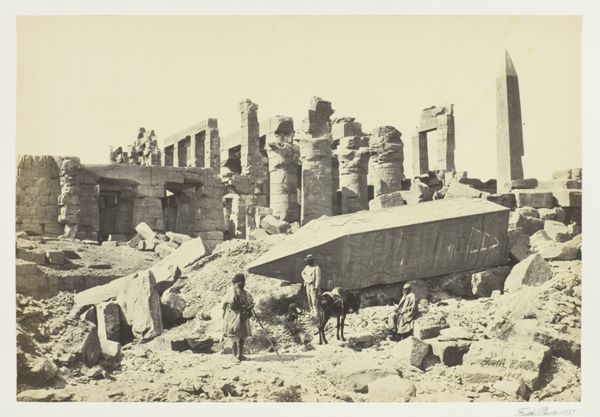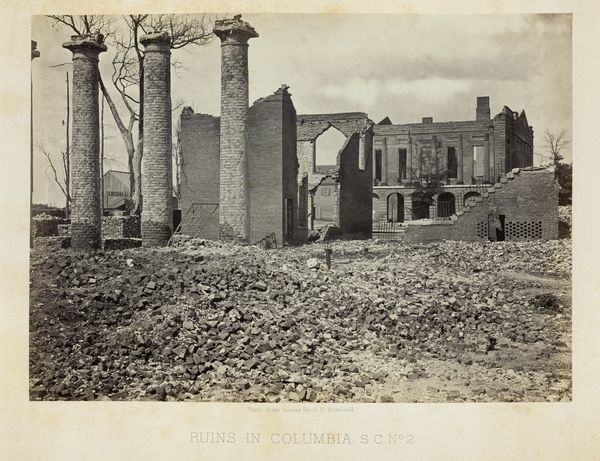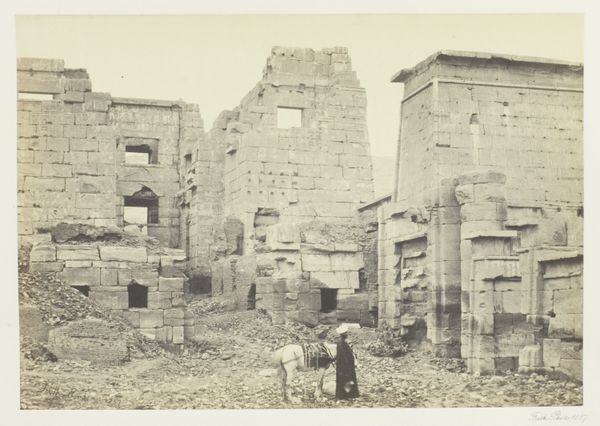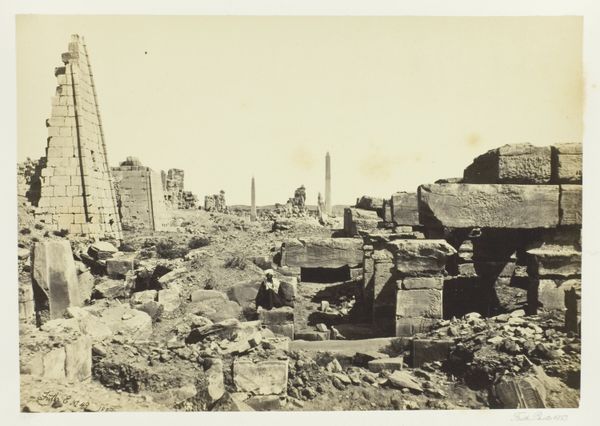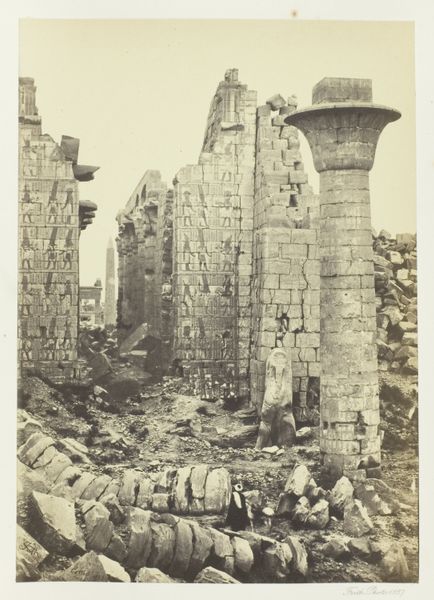
Palais de Karnak, Vue Générale des Ruines, Prise au Nord; Thèbes Possibly 1849 - 1852
0:00
0:00
print, paper, photography, albumen-print, architecture
#
print photography
#
16_19th-century
# print
#
war
#
landscape
#
ancient-egyptian-art
#
paper
#
photography
#
egypt
#
ancient-mediterranean
#
france
#
history-painting
#
albumen-print
#
architecture
Dimensions: 15.7 × 20.5 cm (image/paper); 29.9 × 42.8 cm (album page)
Copyright: Public Domain
In this photograph, Maxime Du Camp captures the Palais de Karnak in Thebes, immortalizing its ruins. Dominating the scene is the obelisk, a symbol deeply rooted in ancient Egyptian culture representing stability, creativity, and the power of the sun god Ra. Note how the obelisk appears throughout history. From the ancient Egyptian monuments, it re-emerges in Roman architecture, and later, as a motif in Renaissance art. It stands tall as a silent witness, carrying the echoes of past civilizations. Its presence in various contexts reveals a human desire to connect with historical narratives. The ruins themselves provoke a sense of melancholy, inviting contemplation on the passage of time. This photograph, like the obelisk, acts as a vessel carrying cultural memory, reminding us of the cyclical nature of history, continually resurfacing, evolving, and taking on new meanings in the human experience.
Comments
No comments
Be the first to comment and join the conversation on the ultimate creative platform.
